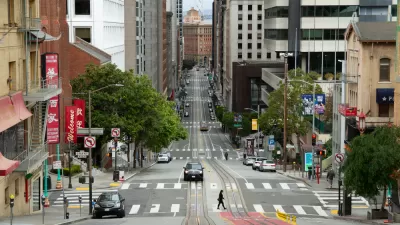Commuters working in New York City and Washington, D.C. will now enjoy transit tickets and passes purchased using pre-tax income.
Are mandated commuter tax benefits that encourage use of public transit spreading? Judging from new laws in Washington, D.C. and New York City that may just be the case. Unlike other environmental laws applied on a statewide basis, such as renewable portfolio standards that require utility companies to increase the use of renewable energy, new laws set that took effect on Jan. 1 are provided for the most part by individual cities.
"The deadline to comply with a new D.C. law requiring companies with 20 or more employees to offer commuter benefits (was) Jan. 1, and that means hundreds more workers will have access to the federal tax break," wrote Luz Lazo in a Dr. Gridlock column in The Washington Post on Nov. 4.
According to instructions provided by Commuter Benefits Solutions on the NYC ordinance, the incentive program enables "employers (to) save 7.65% on payroll taxes (and) employees save up to 40% on their commuting costs."
The timing of the new law for commuters could not be better, thanks to the passage of the omnibus spending bill (Consolidated Appropriations Act, 2016) last month. As the four posts on the bill indicate, there were lots of gifts in it, but none more important for transit commuters than increasing the monthly pre-tax expense for transit riders, currently capped at $130, to $250.
The D.C. ordinance requires that "(a) pre-tax election transportation fringe benefits program that provides commuter highway vehicle, transit, or bicycling benefits...at least equal to the maximum amount that may be deducted for those programs from an employee's gross income." [See page 5 of 12 of D.C. Act (PDF).]
I didn't spot comparable wording in the NYC ordinance [PDF]. However, a footnote in an article dated Dec. 18, 2015 by the Littler employment and labor law practice infers that the maximum benefit is required.
New York City’s Mass Transit Benefit Law requires that most New York City employers with at least 20 full-time employees offer such full-time employees the opportunity to use their pre-tax earnings, up to $130 per month,[1] to pay for certain “qualified transportation fringe benefits,” but not qualified parking.[2]
[1] 26 U.S.C. § 132(f). This is the monthly maximum set by federal tax law. The Internal Revenue Service has the authority to adjust this limit each year for inflation.
A notable exception to the "city-by-city" approach for the mandated transit benefit program can be found in the Bay Area. Seeing the success of the San Francisco ordinance, two Bay Area regional planning agencies agreed to spread the benefits program to the other eight counties in the Bay Area. A dated article by Wage Works explains:
The Bay Area Commuter Benefits Program, Senate Bill 1339 [Leland Yee, (D- S.F.)] signed into law September 30, 2012, was unanimously approved by the Bay Area Air Quality Management District (Air District or BAAQMD) and the Metropolitan Transportation Commission (MTC). A new rule (Regulation 14, Rule 1), developed by Air District staff in cooperation with MTC, was approved by the governing board of Air District on March 19 and fully approved by the MTC governing board on March 27, 2014.
Unlike the, New York City, San Francisco, and Washington ordinances that apply to companies employing 20 or more people, the Bay Area program applies to those hiring 50 or more.
Hat tip to the Associated Press for "New laws in 2016 show states are diverging on guns, voting."
FULL STORY: New Years Gift for Washington and New York City Commuters

Maui's Vacation Rental Debate Turns Ugly
Verbal attacks, misinformation campaigns and fistfights plague a high-stakes debate to convert thousands of vacation rentals into long-term housing.

Planetizen Federal Action Tracker
A weekly monitor of how Trump’s orders and actions are impacting planners and planning in America.

San Francisco Suspends Traffic Calming Amidst Record Deaths
Citing “a challenging fiscal landscape,” the city will cease the program on the heels of 42 traffic deaths, including 24 pedestrians.

Defunct Pittsburgh Power Plant to Become Residential Tower
A decommissioned steam heat plant will be redeveloped into almost 100 affordable housing units.

Trump Prompts Restructuring of Transportation Research Board in “Unprecedented Overreach”
The TRB has eliminated more than half of its committees including those focused on climate, equity, and cities.

Amtrak Rolls Out New Orleans to Alabama “Mardi Gras” Train
The new service will operate morning and evening departures between Mobile and New Orleans.
Urban Design for Planners 1: Software Tools
This six-course series explores essential urban design concepts using open source software and equips planners with the tools they need to participate fully in the urban design process.
Planning for Universal Design
Learn the tools for implementing Universal Design in planning regulations.
Heyer Gruel & Associates PA
JM Goldson LLC
Custer County Colorado
City of Camden Redevelopment Agency
City of Astoria
Transportation Research & Education Center (TREC) at Portland State University
Jefferson Parish Government
Camden Redevelopment Agency
City of Claremont



























